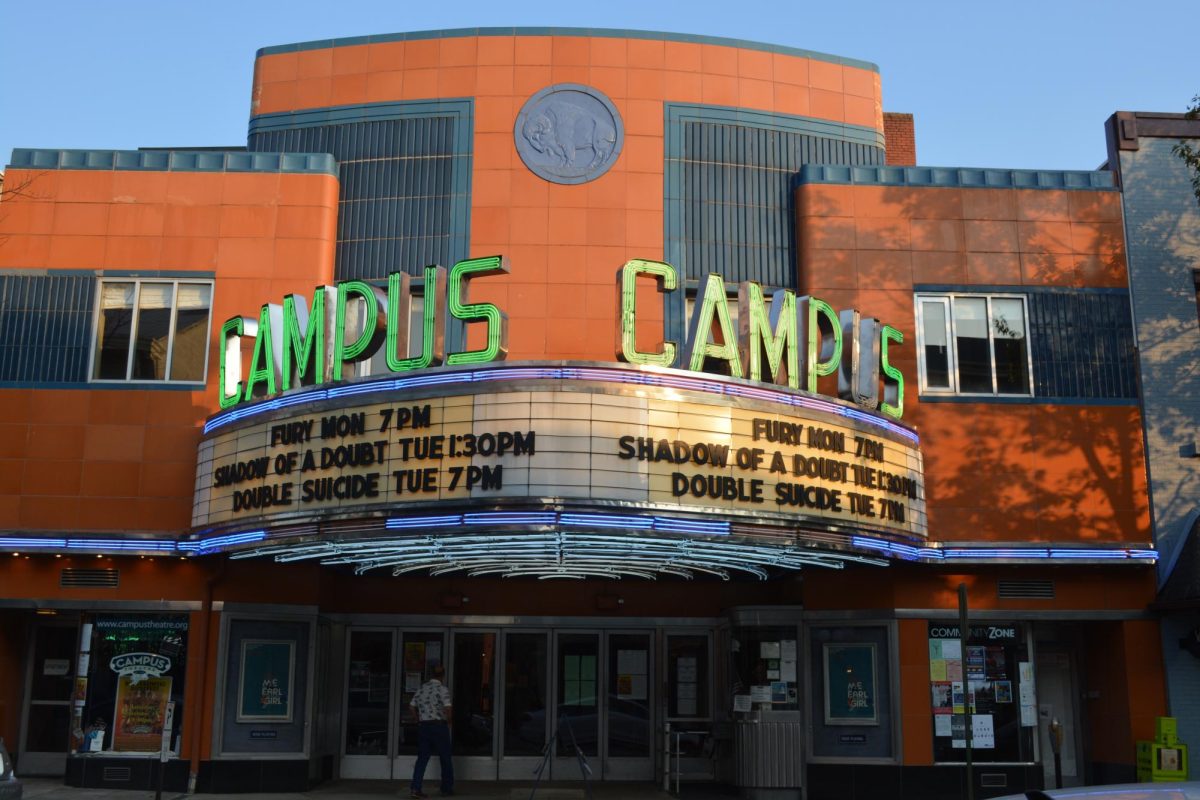In Mumbai’s hustling heartbeat, Payal Kapadia films her debut feature and takes a step away from her documentary work, but it is a cautious step, one that carries with it a legacy of observing life. In a great example of Maya Deren’s theory of the vertical exploration of poetry—that poetry examines not a narrative but an instantaneous feeling of a moment—the film opens with a documentary passage, tracking the street markets of Mumbai from a car, intertwined with bodiless voices of the people, one claiming it’s “afraid to call it home.”
The city itself is a character. It has a personality, though it doesn’t express itself as coherently as our main cast would. We see later when Prabha, played by the amazing Kani Kusruti, reads her unrequited admirer’s poetry in her room at night as an open window shows a train moving through the skyscrapers behind her head. One can’t help but feel the city had its say in the matter.
Prabha shares an apartment with Anu, played by Divya Prabha, and the two work together as nurses at a hospital. The script takes advantage of its first microcosm to explore and explain the taboos and hypocrisies of societal norms. A patient comes in asking about vasectomies for her husband, only to change her mind because she is told “it drains their energy.” She consequently decides to take birth control herself. Anu has a secret lover, and Prabha, consciously or in a trance, projects her own fears of judgment upon Anu, telling her what everyone thinks of her. Yet the film refuses to be a dark parable of city life and is enveloped instead by a sense of love and caring.
The monsoon season, which in cities like Mumbai can lead to floods and disruptive transportation issues, is transformed by Prabha as she tells her “boyfriend” she is “sending [him] kisses through the clouds” which fall with love through the rain. Still, the systematic oppression and structural violence the main cast deals with through the entire movie are ever present yet opposed by the characters’ resilience to give in. When the hospital cook Parvathy, played by Chhaya Kadam, is kicked out of her home, which is to be replaced by a skyscraper, she hesitantly decides to move back to her village. The film spends its second half in this village, which is revealed to be a small paradise itself. She leaves behind a small gesture of rebellion as she throws a couple of rocks with Prabha at the billboard advertisement of the skyscraper showing a white nuclear family next to a not so small statement: “Class is a privilege reserved for the privileged.”
Once in the village, the film delights with some of its best passages, from the nearly drowned man taking in his first breath of life as the water hits the shore, to the hypnagogic cave where Anu describes her escapist desires for another world. Will our characters find some comfort from the alienating great city in the rural town and forest near the beach, or will they separate further like waves on the blank shore? As tensions grow due to Anu’s secret lover Shiaz as well as Prabha’s attempt at finding some inner peace after her husband has left for Germany without a call in a year, the audience sees a powerful montage of body parts, representing the affair. It’s mostly implied, but through a touch of the hair, goosebumps forming on skin and short gazes at one another, the honesty and desire of the moment are palpable.
In a movie preoccupied by language from the very beginning, containing dialogue in Malayalam, Hindi and Marathi and featuring an inability to communicate (the reoccurring preoccupation of cinema), it still finds the best way to show us and give weight to the important moments, with multiple two shot dialogue scenes that let the actors act and time pass with rhythm and off screen space used for both humor and drawn out tension. It’s little wonder that Payal Kapadia won so many prizes worldwide for this performance, including the prestigious Cannes Festival Grand Prix, while also making it onto the Cahiers du Cinéma’s annual top 10 list. We can consider ourselves lucky to have a local premier at our Campus Theater of such works.
“All We Imagine as Light” ends with a second microcosm; as the main cast unites for a conversation on the beach at night, the bar’s neon lights surround them like the illuminated windows of skyscrapers and street lamps of the great city of Mumbai. And as the audience leaves the theater to the neon cinema signs, we can’t help but wonder where our own place is in society, within the fragile norms and expectations bestowed upon us and our bodies in continuously tumultuous political times.



















